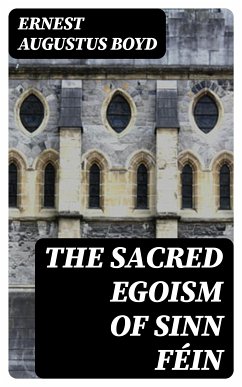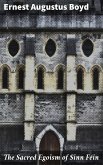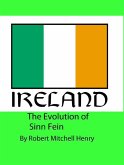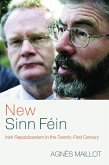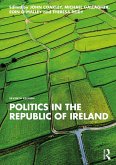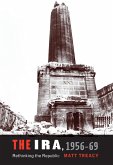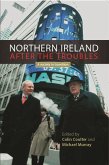In "The Sacred Egoism of Sinn Féin," Ernest Augustus Boyd presents a meticulous exploration of the ideological underpinnings and historical evolution of Sinn Féin, the Irish nationalist political party. Boyd employs a blend of rigorous historical analysis and penetrating social commentary, reflecting the tumultuous context of early 20th-century Ireland and the complex interplay of nationalism and identity. He deftly examines how Sinn Féin's philosophical tenets evolved into a form of 'sacred egoism,' shaping the party's vision and actions and resonating with a populace seeking assertiveness in their cultural and political autonomy amidst British dominance. Ernest Augustus Boyd, a prominent figure in the Irish literary and political landscape, was deeply influenced by his experiences during the turbulent periods of Irish history. His engagement with politics, literature, and philosophy provided him with a unique lens through which to analyze Sinn Féin's motives and aspirations. Boyd's strong commitment to Irish identity and independence is evident in his work, making his insights particularly valuable for understanding this crucial era in Irish nationalism. "The Sacred Egoism of Sinn Féin" is essential reading for anyone interested in Irish studies, political theory, and the intricacies of nationalist movements. Boyd's thoughtful narrative invites readers to grapple with complex ideas surrounding identity, autonomy, and moral imperatives, ensuring a profound engagement with the intricate tapestry of Irish nationalism.
Dieser Download kann aus rechtlichen Gründen nur mit Rechnungsadresse in A, B, BG, CY, CZ, D, DK, EW, FIN, F, GR, H, IRL, I, LT, L, LR, M, NL, PL, P, R, S, SLO, SK ausgeliefert werden.

